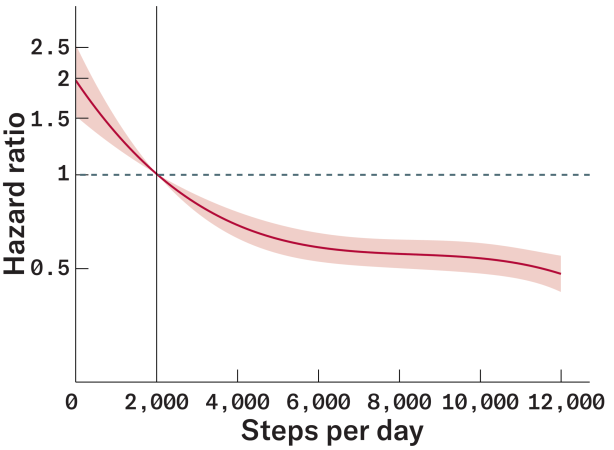How many steps a day do you really need to take?
Even a small increase in steps per day can lower risk of heart disease, dementia and cancer

A modest increase in steps per day is associated with a lower risk of health complications, a new study finds.
Sorrasak Jar Tinyo/Getty Images








